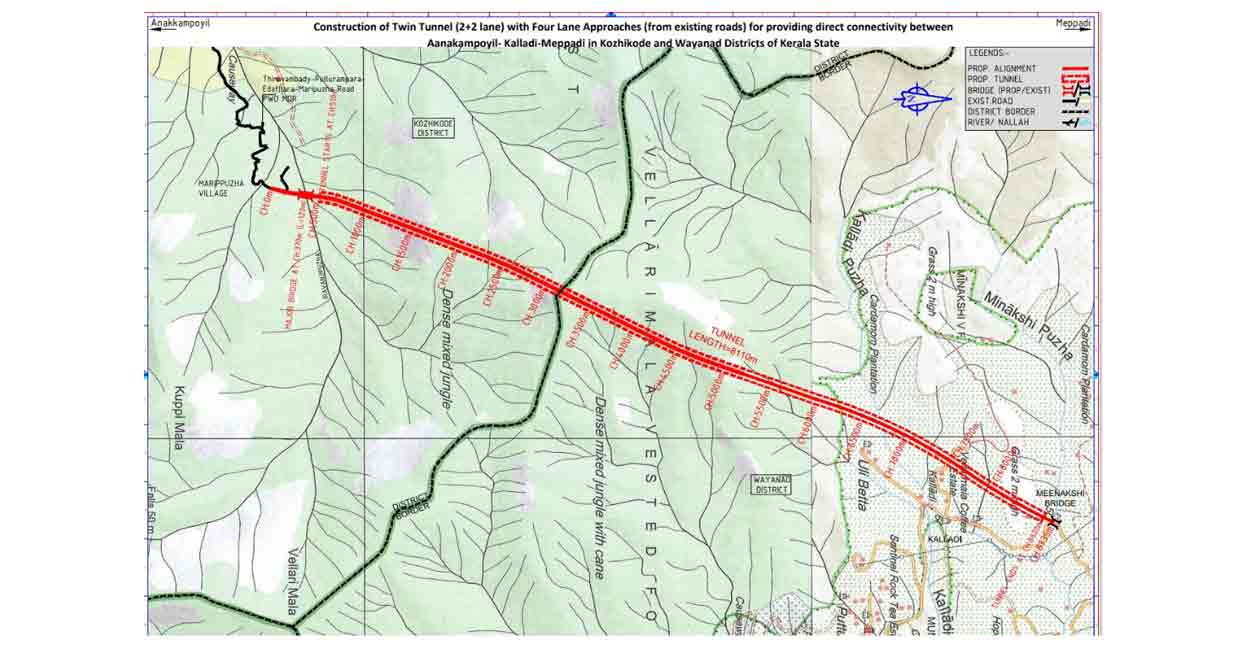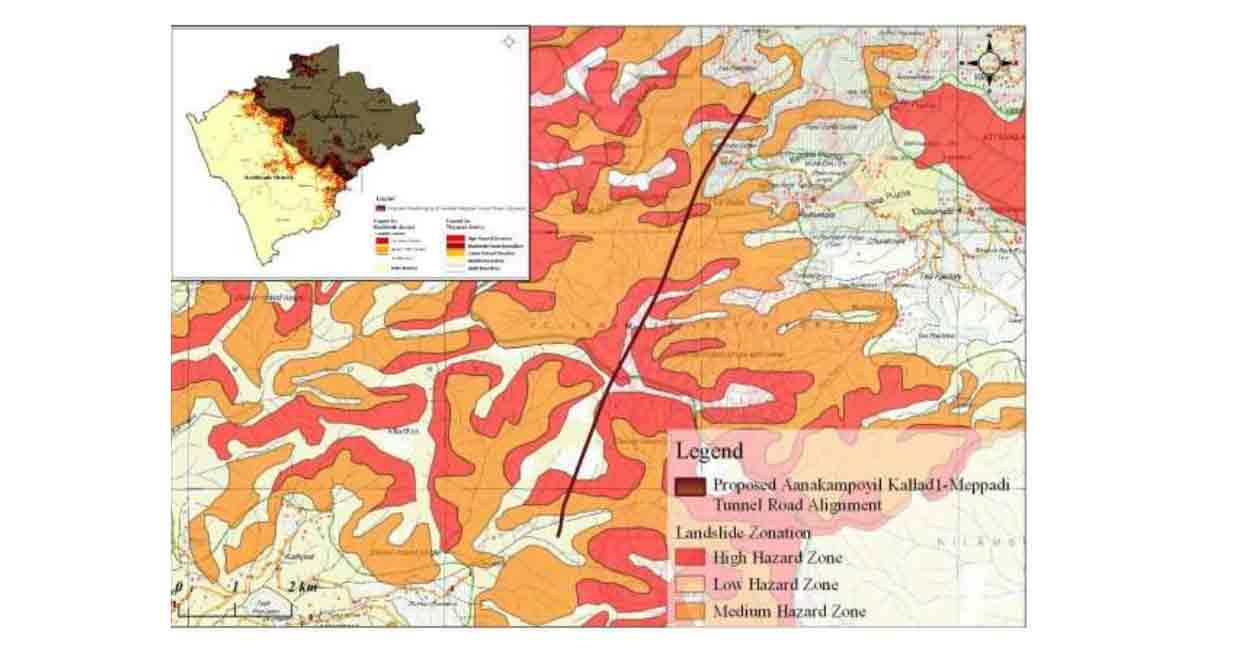Kerala twin-tunnel project area prone to frequent landslides, chances of slope failure exist: Green panel

Mail This Article
Thiruvananthapuram: In the wake of recent devastating landslides, CPI state secretary Binoy Viswam openly expressed concerns over the twin-tunnel project connecting Wayanad and Kozhikode. However, the State Expert Appraisal Committee (SEAC) has already cited the chances of slope failure in the project areas much before the natural calamity struck the northern districts.
The SEAC meeting held in June to assess the application for Environmental Clearance (EC) for the project discussed the field inspection report filed by a four-member sub-committee. The panel made as many as 19 observations that also included crucial points about landslide susceptibility and ecological fragility of the project area, as per the minutes of the SEAC meeting.
It said that the environmental sensitivity of the site is 'high'. Areas near the proposed tunnel road are classified as 'high or moderate landslide hazard zones'. In Thiruvambadi panchayat, 35.67 per cent of the total area falls under 'moderately unstable' areas, 26.54 per cent of the area falls under 'highly unstable' areas and 0.96 per cent of the area is identified as 'critical'.

The project area is known for frequent landslides, especially during monsoon season on the mountain slopes. The stability analysis shows that chances of failure exist in the project areas. The overburden slide or flow down at the interface of overburden and underlying rock is a possibility. The plantation village of Puthumala is approximately 0.85 km away from the proposed tunnel road, where a massive destructive landslide occurred during the monsoon season of 2019. The project area falls in Ecologically Sensitive Area (ESA) Villages. Thiruvambady Village in Kozhikode and Vellarimala Village in Wayanad are ESA Villages, the sub-committee report pointed out.
The Committee has sought additional documents from the project proponent for further appraisal of the application. Among the documents sought is a certificate from a revenue official not below the rank of Tahsildar with a duly signed cadastral level map published on the website of KSBB (Kerala State Biodiversity Board) demarcating the ESA and non-ESA areas in the village. The certificate should include the nature of the land, the nature of possession and a report on natural hazards like landslides.

The Environmental Impact Assessment (EIA) report prepared for the project shows under the activity-impact identification matrix that there is an increased risk of landslides and other geological/seismic hazards during tunnel construction activities including boring and blasting of rocks and the degree of impact is major. Soil erosion, landslide or landslip problems are reported from the project area (within 10 km radii of the project area). The project area falls in the foothills and mountainous region of the Western Ghats, which is very fragile and vulnerable to landslides and tremors, the EIA report shows.
SEAC has earlier noted that the environment management plan prepared by the project proponent does not address site-specific issues like the vibration from blasting during the tunnelling works leading to landslips/landslides in a fragile area. SEAC remarked that an effective regular and continuous monitoring mechanism is needed but not properly addressed in EMP.
The project is meant to provide direct connectivity between Anakkampoyil- Kalladi- Meppadi in Kozhikode and Wayanad. Even when the EIA report mentions landslide hazards in the project area, Linto Joseph, MLA of Thiruvambady, in response to Binoy Viswam's remarks, said that necessary studies have been done before the implementation of the project.


